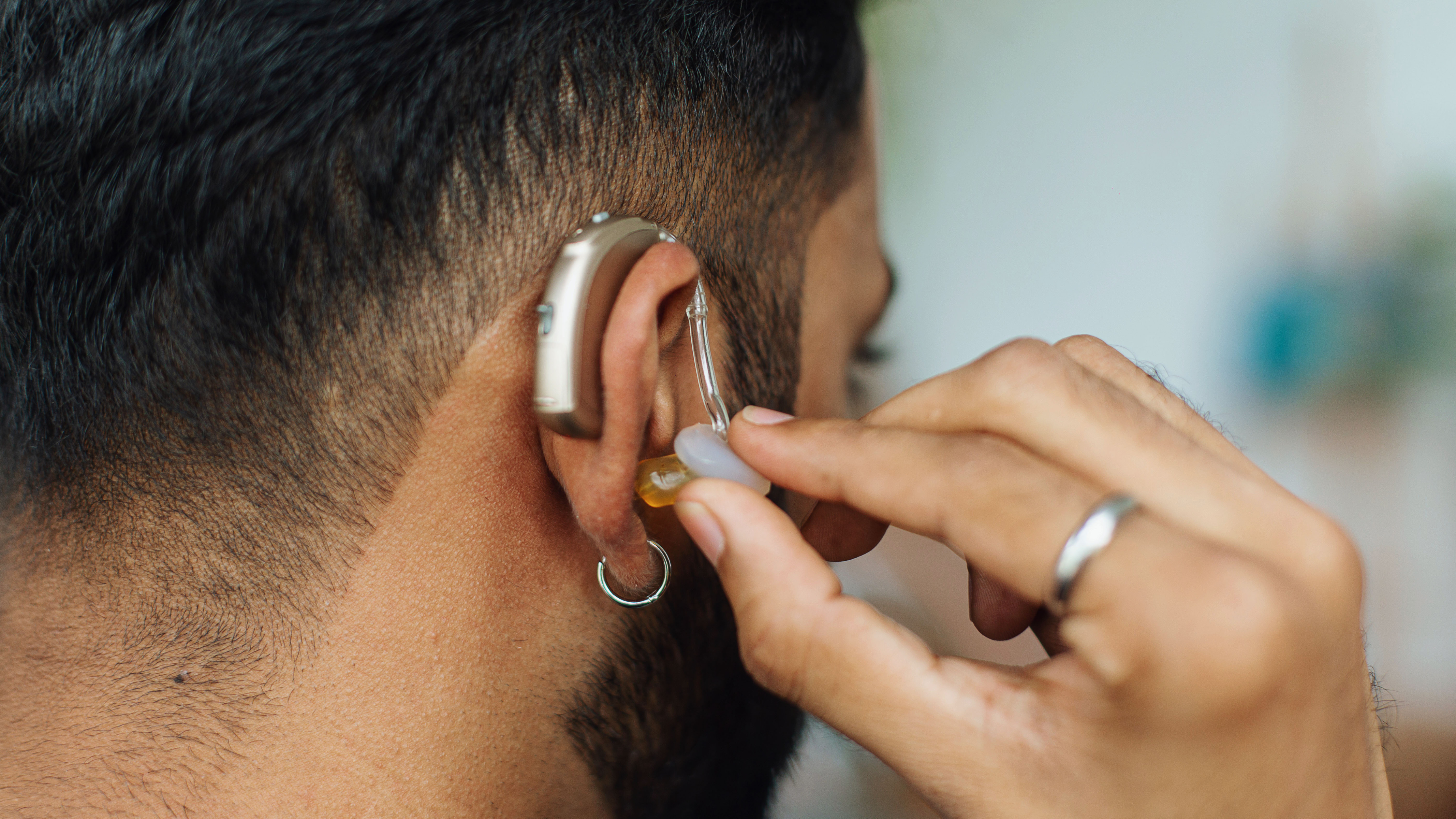Over the counter hearing aids to the rescue
Researchers at the University of Michigan School of Medicine posed the question Can hearing aids delay time to diagnosis of dementia, depression or falls in older adults. Now before you say this doesn’t apply to me – just riddle me this.
WHAT IF, it did? Would you be more likely to wear them? Or how about be more likely to get screened or even take better care of your ear health now so you wouldn’t have to wear them. I believe most people would, so continue reading…
The study found that people with hearing loss who used hearing aids had LOWER risks of being diagnosed with all those things compared to those who left their hearing loss uncorrected! The study looked at 114 862 participants (aged 66 and older and diagnosed with hearing loss) and found the relative risk of being diagnosed with dementia and/or Alzheimer’s disease (AD), within three years of a hearing loss diagnosis was 18% lower for hearing aid users. The risk of being diagnosed with depression or anxiety by the end of three years was 11% lower for hearing aid users, and the risk of being treated for fall-related injuries was 13% lower.
How is hearing loss related to dementia/AD and depression/anxiety?
People with hearing loss usually find communication difficult, and this can lead to stress, fatigue and social isolation causing anxiety and depression. It can also decrease spatial awareness and cause a loss of balance leading to falls. Also there is less stimulation to the brain with hearing loss accompanied with a decline in memory and thinking skills which AD and dementia. In midlife, hearing loss is the single, highest most modifiable risk factor for dementia.
How many people experience hearing loss and would benefit from hearing aids?
According to the National Institute of Deafness and Other Communication Disorders (NIDCD), approximately 30 million adults in the United States could benefit from wearing hearing aids. Of Americans (age 20-69) who could benefit from wearing hearing aids, fewer than 16 percent have ever used them. Of those age 70 and older who could benefit from wearing hearing aids, fewer than 30 percent have ever used them.
So why aren’t people wearing hearing aids?
Hearing loss can be subtle so many people don’t know they have hearing loss, or they’re in denial or they accept it as a part of aging. There is also the stigma of wearing one that means you’re old. But in today’s age, people have earpods in all the time – so you’re already wearing something in your ear – why not make it count. And most importantly is the price. Hearing aid prices range from $1,000 to $4,000 per device (each ear) depending upon the level of technology they contain. Medicare doesn’t cover hearing aids. Medical covers some costs for those qualify. And private insurance can vary but usually don’t.

Tell us about the newFDA approved hearing aids that are coming and when will people be able to purchase them?
The FDA is currently working on guidelines and regulations for OTC hearing aids. The goal is that they’ll be available early part of 2020. Bose already has a product approved to be sold but it still has not been released. It’s unclear how much they will cost but the price is definitely expected to be cheaper than standard hearing aids. For now there are products in the stores called “personal sound amplification products” that may be helpful and less expensive than hearing aids. The catch 22 is that they are not regulated by FDA, and the device makers are not supposed to market them for hearing loss, but some come fairly close to the real things. Those range $10-$1000.
In summary, the goal with having OTC hearing aids is to remove barriers for those who want a device to help with their hearing loss without having to spend thousands of dollars and go thru the insurance red tape of getting hearing aids from an audiologist. It’s still important to get hearing tests if you are going to buy these devices so you can auto program them correctly. You’ll also want to know if you have a type of hearing loss that can even benefit from these devices. You may have a hearing loss that can be corrected with medicine or surgery so you don’t need one.
Back to the devices… having these OTC devices with the wrong settings could potentially further worsen your hearing loss instead of improving it or delaying it which the proper settings can do. How? If the settings are too loud – you be self inflicting loud harmful sounds causing your hearing to get worse. The whole idea behind having OTC hearing aids is to simply making access and affordability the priority for people who really need them.
There are different types and causes of hearing loss so not everyone will benefit from a hearing aid. For more information, please visit your health care provider and ask about your hearing and if you could benefit from them.
Can you hear me now?
What should scare you most about hysterectomy?
Walking A Mile In Their Shoes: Understanding The ADHD Parenting Journey
Melanin & Misdiagnoses: The Hidden Struggles Of Psoriasis In People Of Color





